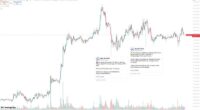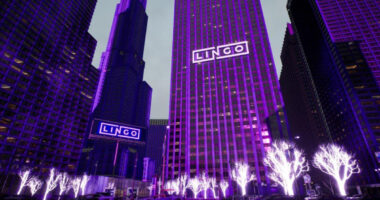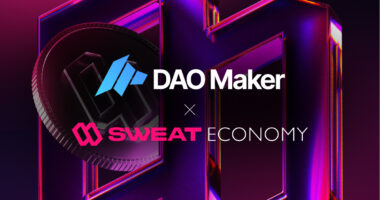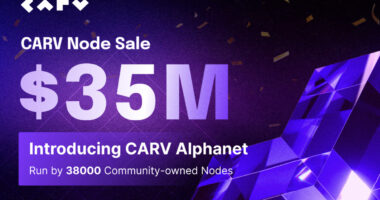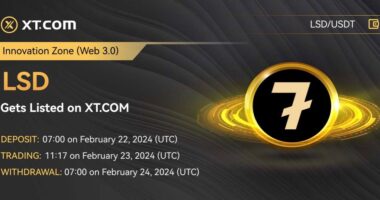R0AR has announced the listing of its $1R0R token on prominent exchanges MEXC and BitMart, marking a significant step toward making DeFi as accessible and secure as traditional banking while preserving user self-custody and decentralization. Dustin Hedrick is the co-founder and CTO of R0AR, a unified DeFi operating system that has recently listed its $1R0R token on MEXC and BitMart exchanges.
“Today, decentralization is more often a narrative than a condition,” Hedrick told Business Insider. Despite over a decade of development, he argues, the DeFi ecosystem remains structurally compromised by external dependencies. Rather than building another protocol that adds to DeFi’s complexity, he explained, R0AR is engineering the infrastructure layer that makes decentralized finance as intuitive as traditional banking without sacrificing self-custody or decentralization.
It’s a bold claim from someone who’s watched the DeFi ecosystem grow to $132 billion in total value locked while fundamentally failing in his view, to deliver on its core promise.
The engineer who saw through the illusion
Unlike many crypto founders who started as traders or investors, Hedrick brings a rare perspective shaped by decades of building across every generation of the internet. His career spans Web 1.0, Web 2.0, and now Web 3.0, with deep expertise in cybersecurity that gave him unique insight into the vulnerabilities plaguing modern DeFi architecture.
When he first looked at DeFi architecture, he recalled feeling horrified by an industry claiming to give users control of their money while requiring the average person to use 5 to 12 different applications just to do basic financial tasks.
The problem runs deeper than user experience, as users often operate under the illusion of holding keys while relying on third-party frontends, interacting with contracts through custodial interfaces and generating behavioral data that is silently extracted and monetized. Hedrick explained that execution paths are hidden, UIs are fragmented and most users operate without knowing where their data goes or how decisions are made on their behalf.
Building sovereignty from the ground up
Research shows that institutional investors have largely stayed away from DeFi despite attractive yields, as regulatory uncertainty and liquidity fragmentation across various platforms create risks that institutional capital can’t accept.
“This isn’t just a user experience problem,” Hedrick said. “It’s a fundamental architecture problem. We built DeFi like we built the early internet, a bunch of disconnected services that require users to be systems administrators.”
However, R0AR’s approach is comprehensive: five interconnected products that function independently yet work together seamlessly. The company built its own Layer 2 blockchain (R0ARchain), self-custody wallet, AI agent (R0ARacle), unified trading platform, and portal for tokenized real-world assets. This eliminates the fragmentation that typically forces users to bridge chains, swap dashboards, and navigate third-party services just to complete basic financial tasks.
The AI advantage without the surveillance
The AI market is expanding at 23.6% annually and is now worth almost $55 billion, according to industry analysis, but Hedrick argues most projects are missing the point. He describes most AI in crypto today as just ChatGPT for trading, while R0AR built an AI that operates as an extension of user intent while maintaining absolute privacy.
R0ARacle provides real-time risk assessment, market analysis, and trading signals without harvesting behavioral data or compromising user autonomy. It flags suspicious transactions, generates wallet risk scores, and delivers alerts all while maintaining privacy by design.
The trillion-dollar institutional awakening
Hedrick believes the real test of DeFi’s maturity will be institutional adoption, with the upcoming R0AR Portal enabling institutions to onboard tokenized instruments with native compliance scoring, ownership tracking and yield-bearing integrations. He argues that institutional capital brings credibility and liquidity to DeFi markets, but institutions need infrastructure that doesn’t compromise their fiduciary duties or regulatory requirements.
The timing appears strategic, as tokenized real-world assets grew by $1.05 billion in 2023, with 82% coming from yield-bearing assets like treasuries and real estate, according to RWA market analysis. Meanwhile, regulatory frameworks are becoming clearer, particularly with the Trump administration’s pro-crypto stance, creating demand for infrastructure built around true sovereignty rather than platform extraction.
We reached out to Hedrick to ask him about his biggest challenges and what’s next for R0AR.
Biggest technical challenge this past year?
Figuring out how to build native AI that provides intelligence without surveillance. Most crypto AI projects just plug into existing models and call it innovation. We had to build R0ARacle from the ground up to maintain true privacy while delivering real-time insights.”
What’s your No. 1 goal for 2025?
The goal is to prove that unified DeFi infrastructure can scale to institutional levels. We’re launching the R0AR Portal for RWA tokenization, and if we can onboard even one major institution properly with full compliance and true self-custody, it validates the entire sovereignty thesis.
Give us a prediction for crypto next year.
Users will demand to know where their data goes and who profits from their transactions. The platforms that can’t answer those questions transparently will lose to those that can.
What’s the biggest misconception about DeFi?
That holding keys equals sovereignty. You can hold all the keys you want, but if you’re forced to use interfaces you don’t control, interact with contracts you don’t understand, and generate behavioral data that’s harvested without your knowledge, you’re not sovereign, you’re just a more sophisticated kind of user.
Disclaimer: The information provided in this press release is not a solicitation for investment, nor is it intended as investment advice, financial advice, or trading advice. It is strongly recommended you practice due diligence, including consultation with a professional financial advisor, before investing in or trading cryptocurrency and securities.
This press release was originally published on this site


